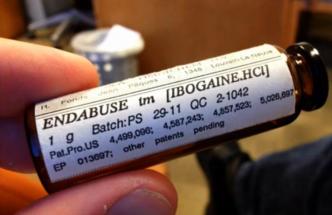The Potential of Ibogaine in Treating Substance Abuse

Addiction Psychopharmacology
Addiction Research Articles
Addiiction Clinical Trials
Ibogaine Research and Articles
Overview
Originally Published: 10/07/2014
Post Date: 12/15/2014
Source Publication: Click here
Similar Articles: See the similar article
by Constance Scharff, Ph.D., and Richard Taite - Psychology Today
Summary/Abstract
There is substantial evidence from preclinical and open-label clinical studies supporting the anecdotal reports of the ability of ibogaine to interrupt addiction to opiates and other drugs, there have not yet been any complete controlled clinical trials. Ibogaine is used in other countries for opioid detox and is reported to be effective with PTSD.
Content
I have a very specific agenda when it comes to addiction treatment research. I believe that any therapy or medication which shows promise in treating addiction should be tested for efficacy and safety. At present, many such treatments are not tested because they do not have the potential to make anyone a great deal of money. University research is too often directed by research grants, grants that frequently come from places like pharmaceutical companies, investors who have an interest in having research on potentially profitable treatments moved to the head of the line. The tragedy is that in a clinical setting, we have found that it is the treatments that are not profitable that are frequently the most effective. Let’s consider one such potential treatment – Ibogaine.
Ibogaine is a naturally occurring psychoactive indole alkaloid, one of at least a dozen alkaloids found in the shrub Tabernanthe iboga. Ibogaine is the most studied alkaloid present in the iboga shrub and was used as an adjunct to psychotherapy as early as the 1950s. It has been the subject of biological and clinical research investigating its purported efficacy for the treatment of addiction to opiates and other substances. There is renewed interest in ibogaine research and its potential use in addiction treatment because those who take the medication report a sort of “reset” of their being and a complete and immediate disinterest in using drugs, particularly opioids. When followed up with intensive one-on-one psychotherapy, anecdotal reports are that this drug brings about a true opportunity for recovery.
Although there is substantial evidence from preclinical and open-label clinical studies supporting the anecdotal reports of the ability of ibogaine to interrupt addiction to opiates and other drugs, there have not yet been any complete controlled clinical trials. Largely because of ibogaine's status as a Schedule I substance in the U.S., the development of ibogaine in the treatment of drug addiction takes place outside conventional clinical and medical settings. Side effects and safety concerns have hampered its development as a therapeutic medicine, though since the drug is taken only once, it is likely that these negative effects will be short-lived and can be effectively managed if the drug is used in a clinical setting.
The iboga alkaloids are a class of small molecules, some of which modify opioid withdrawal in humans. These compounds may represent an innovative approach to neurobiological investigation and development of and effective addiction therapy. The National Institute on Drug Abuse has recently committed $3.6 million dollars to enable clinical trials to develop synthetic iboga alkaloid 18-methoxycoronaridine hydrochloride (18-MC). The innovative aspect of this research is that 18-MC has the potential to treat multiple forms drug addictions.
Yet the drug has little potential to make money.
“Despite what appears to be a huge market for a drug that could interrupt drug addiction,” says Don Allan, “ibogaine does not fit the profile of a prescription drug that can make money for a pharmaceutical manufacturer. Most prescription drugs are administered daily over a period of weeks, months or years. Iboagine is generally used once in a single dose, and then followed up with several months of psychotherapy.”
The potential benefit of ibogaine, if it works as proponents and researchers believe it does, is extraordinary, in terms of both possible lives saved and economic cost to society. In addition, there is no evidence to suggest that ibogaine is physiologically or psychologically addictive to humans. It is a drug that demands more research.
It is important that those who suffer from addiction have every opportunity to recover. When drugs or other therapies show promise of giving addicts hope of recovery, those interventions need to be studied for efficacy and safety. Drug addiction saps our economies and kills those we love. If we can do better, we should. Research is part of the answer.
http://www.ncbi.nlm.nih.gov/pubmed/23627782





